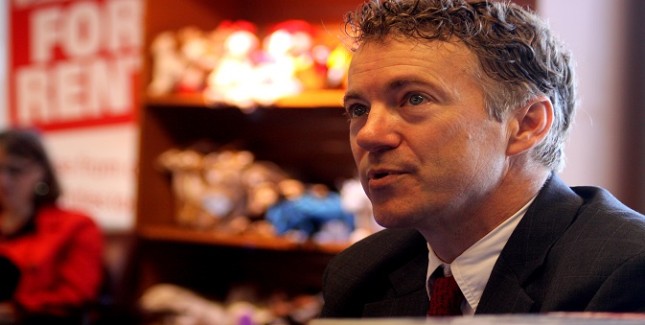Republican presidential candidate Rand Paul called Thursday for a “fair and flat tax” that would “blow up” the nation’s tax code, offering a proposal his campaign said would cut taxes by $2 trillion over the next decade.
The first-term senator from Kentucky released the outline of a plan to institute a 14.5 percent income tax rate on all individuals and on businesses. It was among the first major policy proposals released by Paul’s presidential campaign, although he did not make the full plan available for review. “Basically my conclusion is the tax code can’t be fixed and should be scrapped,” he said in an interview with The Associated Press. “We should start over.”
Many of the dozen major Republican candidates for president list tax reform among their priorities. Texas Sen. Ted Cruz, for example, is among the GOP contenders calling for the wholesale abolition of the Internal Revenue Service – a position many experts say is unrealistic. But few have offered detailed proposals, and while Paul said his plan would benefit Americans both rich and poor, he cited an independent analysis that his campaign did not make available to reporters.
In a column describing highlights of his plan published Thursday in The Wall Street Journal, Paul called for the outright elimination of payroll taxes on workers and of several other federal taxes, including those on gifts and estates, telephone service and all duties and tariffs. He also proposed eliminating all corporate tax subsidies and personal tax deductions, except those for mortgage interest and charitable donations.
Florida Sen. Marco Rubio stands out among his Republican colleagues for offering the most detailed economic agenda of the GOP candidates for president, anchored by a massive tax cut that the conservative Tax Foundation said could add as much as $4 trillion to the nation’s debt in its first decade.
That approach keeps with conservative economic thinking that the best way to spark growth and increase wages is to reduce the tax burden on businesses, the wealthy and investors. Rubio would also eliminate all taxes on investment income, a change that largely favors the wealthiest Americans. However, like Paul’s emphasis on tax cuts, it is an approach that exposed Republicans to Democratic criticism that they favor the rich.
